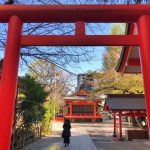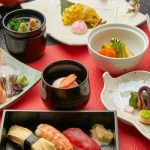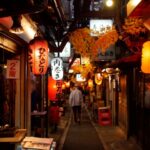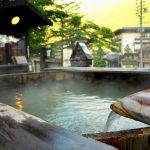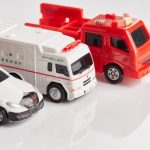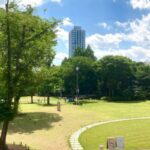Getting sick in Japan can be frightening and frustrating. Here is some useful information and language help for the next time you go to your local hospital.
Being ill in a foreign country can be uncomfortable and frustrating at best and downright frightening at worst. When you are throwing up or in pain, the last thing you want to deal with is navigating a language barrier and unfamiliar customs. Luckily, a little knowledge and preparation can go a long way towards making the process as painless as possible. Not much good came out of my battle with chronic illness in Japan, but one thing that did was a long and useful list of new vocabulary plus the cultural understanding to help other people when they get sick.
Below is a brief explanation of the Japanese healthcare system, some lingo to help you out and some useful health resources to check out. Hopefully, you will need them as little as possible.
The Japanese medical system: a brief guide
If you are residing in Japan for longer than three months, it is mandatory to be enrolled in the Japanese health insurance system even if you have travel insurance or are covered by your insurance back home. If you are a full-time employee you will most likely be enrolled in your company’s shakai hoken (社会保険), in which your health insurance, as well as your pension, gets directly deducted from your pay. If you are self-employed or are not working, you must enroll yourself in Japan’s National Health Insurance — kokumin kenko hoken (国民健康保険) — which you can apply for at your local city hall. Your premium will depend on your income for the previous year.
If you are insured under either system, when you go to the doctor you will have to pay usually only 30% of the bill (the government covers the remaining 70% using your taxes). Make sure to bring the wallet size health insurance card you are issued to your appointment – I always carry mine with me everywhere I go in case of emergencies. Some conditions, such as mental healthcare, contraception and many voluntary check-ups (if you’re lacking any pain or symptoms), are not covered by national health insurance, so do your research beforehand to prepare for the bill.

An example of a Japanese health insurance card.
Common minor ailments
In English, we use the words ‘serious’ and ‘minor’ to describe the severity of an illness. In Japanese, omoi byoki (重い病気), ‘heavy illness,’ describes conditions such as heart disease or cancer whereas karui shojo or karui byoki (軽い症状, 軽い病気), ‘light illness,’ is used in less serious conditions, including when headaches or colds. Here is a list of the Japanese words for common ‘light’ illnesses.
Migraine – Henzutsuu (偏頭痛)
Cold – Kaze, (風邪)
Flu – Infruenza (インフルエンザ). The Japanese flu season usually begins in late autumn or early winter and it can get nasty. Many residents protect themselves by getting an annual flu vaccine, infruenza yobou sesshu (インフルエンザ予防接種).
Food poisoning – Shokuchuudoku (食中毒). Tokyo holds its restaurants to high standards but occasionally this can happen — especially after eating raw oysters.
Urinary tract infection – Boukouen, (膀胱炎). Be aware that with any infection, Japanese people are sometimes raised on a lower dose of medicine than you may have been in your own country, meaning that the antibiotics you get could be weak. If you finish your course and your infection has not gone, make sure to go back to your doctor.
Constipation – Benpi (便秘). Not uncommon for foreigners who are not used to the amount of rice and lack of fresh fruit in the Japanese diet. Be careful with the over-the-counter laxatives as they can be way too strong! Best to head to the doctor for appropriate medicine, lest you end up with the opposite problem, geri (下痢), diarrhea.

In case of emergencies
In a medical emergency, the number for ambulances in Tokyo is 119. Ambulances are free in Japan and are managed by the fire department so make sure to be clear you are asking for an ambulance (kyuukyuusha, 救急車) instead of reporting a fire (kaji, 火事). Be prepared to state your address or describe where you are. English speaking telephone operatives are sometimes available, if not, Tokyo Fire Department has published a guide on what to say.
Getting help in English
One thing I learned the hard way was that English speaking doctors in Japan are not always good doctors. If you have a serious condition, think well about whether you want to see someone who can speak to you in English or seek out a specialist in the relevant field. That being said, here are some English speaking organizations that have the stamp of approval from the expat community.
Primary care: Many expats recommend Primary Care Shimokitazawa. Dr. Joe Kurosu is bilingual and studied Medicine in Stanford. His clinic is the perfect first stop for your health needs and if they can’t help you they will refer you to foreigner friendly specialists.
STI testing: STI testing can be expensive in Japan so head to the Shinjuku City Public Health Center to avoid the bills. Twice a month on Thursday, the center offers free testing in English, Thai, Spanish and Portuguese.
Hospitals: There are a number of international hospitals in the Tokyo area but many do not accept National Health Insurance. St Luke’s International Hospital is the biggest one that does and offers English speaking doctors over a wide range of disciplines as well as administrative support in English.
Information: Japan Healthcare Info is an organization which offers free healthcare related services to foreign residents. They can recommend a specialist for your specific condition, book appointments for you, provide hospital interpretation services and offer general advice when navigating the Japanese healthcare system. GaijinPot Health is also a great resource for finding English-speaking hospitals in Tokyo.
(Source: SAVVY TOKYO)



